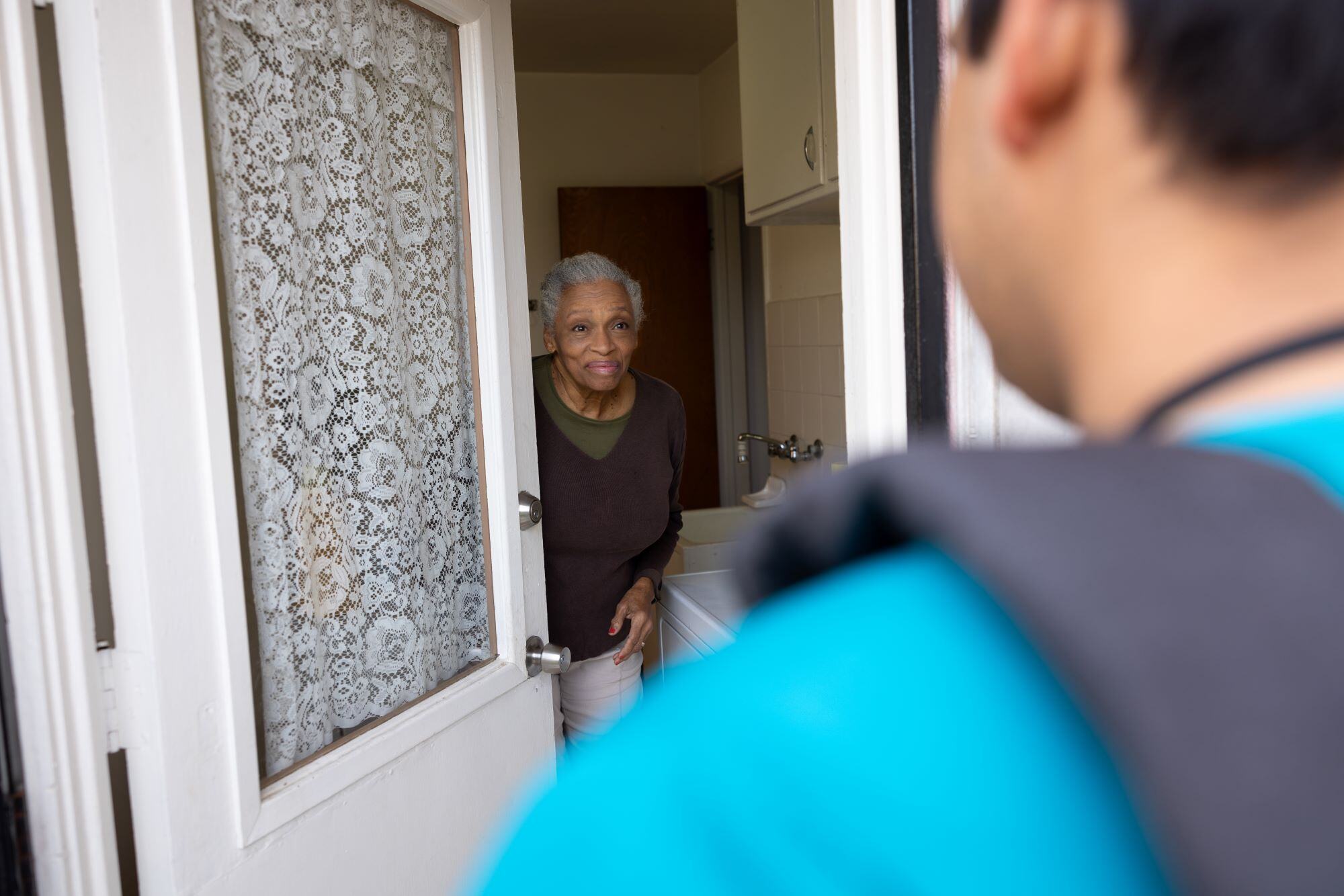
At Signify Health, our mission is to build trusted relationships to make people healthier. Our national network of more than 12,000 clinicians works to help people gain a more comprehensive view of their health by conducting In-Home Health Evaluations (IHEs). During an IHE, clinicians identify chronic conditions, close gaps in care, and address social determinants of health, making it possible for health plan members to get connected to the right care for their unique needs.
We’re proud to showcase the clinicians helping us build a more connected, effective care experience for all – and their personal stories that make this important work feel #ClosetoHome. This is Albert’s story.
Albert Kim has always been committed to a career in health care, but he didn’t start out as a nurse practitioner. He began his professional journey as a research scientist, supporting medication development. But something was missing.
“I felt I was making a contribution to society, but I wanted to have a more hands-on, practical impact. Becoming a nurse practitioner has given me that opportunity. I really enjoy helping members and making a direct contribution to people’s lives,” Albert said.
As a Signify Health clinician since 2014, he’s had the opportunity to focus on the aspects of health care he values most: prevention and chronic care management. Albert enjoys helping members learn the steps they need to take to manage their chronic conditions, from making better lifestyle choices to taking medications as prescribed. With conditions like diabetes, high blood pressure, and others, he believes prevention and management are key.
“The In-Home Health Evaluation (IHE) offers a valuable service to the members we see. They don’t always get enough time with their primary care provider. Signify Health clinicians can help to fill that gap by providing a more in-depth experience and helping to address things we’re seeing in the home,” he said.
Over his years seeing health plan members, Albert has noticed some consistent challenges, including:
- Health literacy: Members often lack the information they need to properly manage their health and medications. Background, education level, language barriers, and socioeconomic status are all factors contributing to gaps in health care knowledge.
- Access to a PCP: Members either need help finding a primary care provider (PCP) or face challenges maintaining appointments, including transportation, appointment availability, etc.
- Limited time: During visits with PCPs and specialists, members do not always have the time they need to ask questions and discuss all their symptoms.
Making the Difference
Albert is intentional during every visit, ensuring he brings his full attention to each member and their needs. He follows a few best practices to ensure his visits go smoothly:
- Setting intentions for the visit: Before Albert even arrives at the member’s door, he takes a moment to focus on treating every member with a kind, compassionate attitude.
- Making an introduction: He believes the reminder call is another important way to set himself and members up for the visit. Calling the day before, introducing himself, and setting expectations for the visit helps the member feel prepared.
- Good listening skills: During the visit, Albert listens to members’ concerns and answers questions in a way that’s easy to understand.
“I approach every visit thinking about why I’m there. How can I help that member and address their concerns? Clear, effective communication is key to a successful visit,” he said.
Albert hopes he makes a difference during every visit, but two experiences stand out as opportunities to provide valuable education. The first was a gentleman who was taking more than 20 medications and struggling with symptoms including low energy, depression, and insomnia. Infrequent visits to his PCP meant he wasn’t getting the care he needed - he had given up on ever feeling better.
“During that visit, we went through everything. We also discussed the actions he could take to better manage his blood pressure,” Albert said. “As I left the visit, he said how impressed he was with the visit and attention we provided. It changed his outlook on his health.”
Abert felt the same appreciation after another visit with a husband and wife. He not only helped resolve a medication issue, but answered a number of other questions. Once again, the members appreciated the in-home support and the chance to ask questions they don’t always ask with their PCP.
In his free time, Albert enjoys reading, exercising, and visiting the museums near his home in Waltham, MA. He also enjoys traveling, both within the U.S. and internationally.
